"This is what is possible with good government that works for people. This is what happens when people are put closer and closer to decision-making power."
- Carrie Santoro, Pennsylvania Stands Up
Country singer Jason Aldean recently sparked a firestorm with his song “Try That in a Small Town.” In his lyrics, Aldean paints a bleak portrait of small towns as places where residents fear outsiders, and use guns to keep them out. “We take care of our own,” Aldean warns, so stay away.
Here at People’s Action, we know better. Many of our members live in small towns. So we know how strong they can be when they organize. Small-town Americans want the same things we all do: a good home in a strong community with good neighbors, and hope for a better future.
I’ve lived in Kansas my whole adult life, and as the director of People’s Action, I spend a lot of time visiting small towns and rural areas. The people I meet are, for the most part, kind and generous. Yet they are also hurting. Because small-town America has been underfunded for decades.
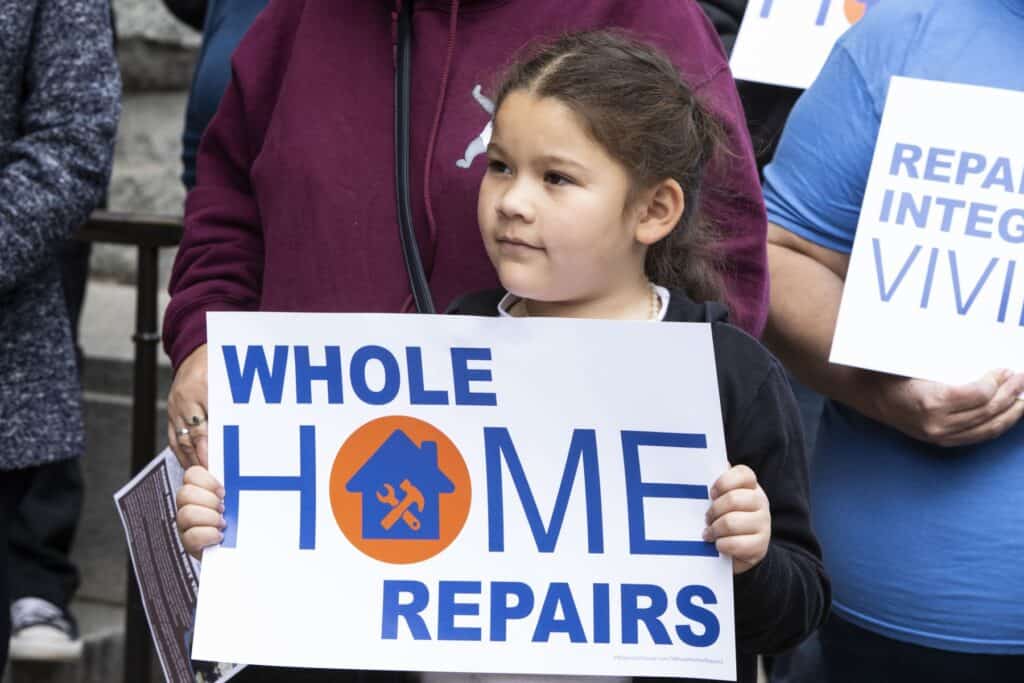
That’s why I’m so excited by the opportunities for both small towns and cities in the Inflation Reduction Act (IRA) and other federal programs, including the American Rescue Plan (ARP), the Infrastructure Investment & Jobs Act (IIJA) and CHIPS Act. Over the next few years, these programs will invest as much as $4 trillion to create jobs and infrastructure to jumpstart our transition to renewable energy, all across the country.
These investments can transform communities, especially where Republican legislatures have slashed funding for services we all need like education and health care. Organizers can help ensure these federal dollars create stronger communities in the places people need them most.
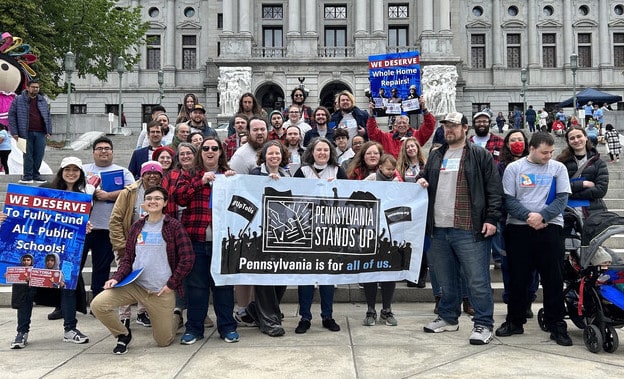
One of our affiliate groups, Pennsylvania Stands Up (PASU), stepped up to this organizing challenge with a creative solution: they partnered with state legislators Sara Innamorato and Nikil Saval to launch Whole-Home Repairs, a bipartisan program that channels $125 million in federal funds directly to households with credits of up to $50,000 so they can fix their roofs, install energy-efficient furnaces and weatherproof homes. Making these repairs helps people lower utility bills, qualify for renewable energy credits, and reduce greenhouse gas emissions.
“We all want the tools and opportunities to build a good life, but there’s struggle everywhere," says Carrie Santoro, executive director of PASU. “In big cities and small towns, Pennsylvanians have to choose between keeping the heat on and putting food on the table.”
A program like Whole-Home Repairs sounds too good to be true in places where funding has been cut to the bone. So Saval and other lawmakers embarked on a whistle-stop tour to bring this good news directly to their neighbors.
“The wealthy and powerful want to divide us along a 'rural-urban divide,’” says Santoro. “So taking Whole-Homes Repairs from Philadelphia to Scranton, Allentown, Reading, and Lancaster County was our opportunity to tell a better story about things that affect us all, and what we can do.”
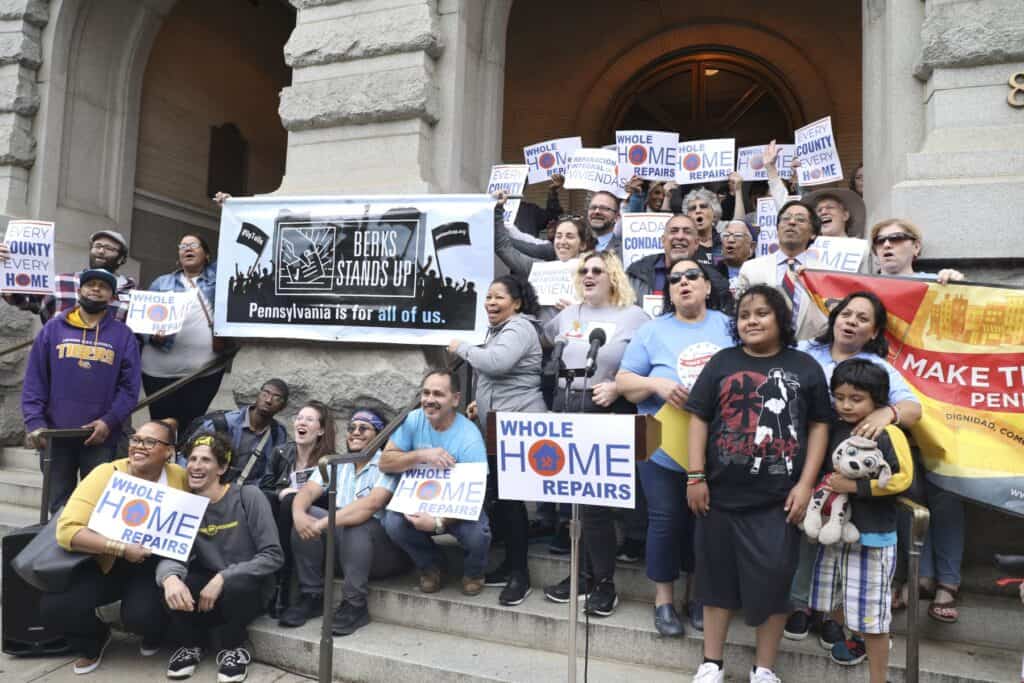
Five months later, Whole-Home Repairs is Pennsylvania’s most popular policy initiative.
More than 5,000 households in 64 of Pennsylvania’s 67 counties have qualified. Insulation is going into walls with fresh coats of paint, and roofs are getting fixed. Improvements like these make a tangible difference to families who have suffered decades of neglect, and restores our faith that democracy can improve our lives.
Just as importantly, a program like Whole-Home Repairs offers an opportunity to connect with neighbors, and to work together after years of social isolation. To me, this feels like what happens at an old-fashioned community revival. Because when you meet your neighbors, you find you have a lot in common, and nothing to fear.
“This is what’s possible when working people come together across race and place to create good government that works for all of us,” Santoro tells me. “This is what happens when we’re closer to decision-making power, and have the opportunity to imagine, ‘What power do I have to make material change in my own life, and the life of people in my community?’”
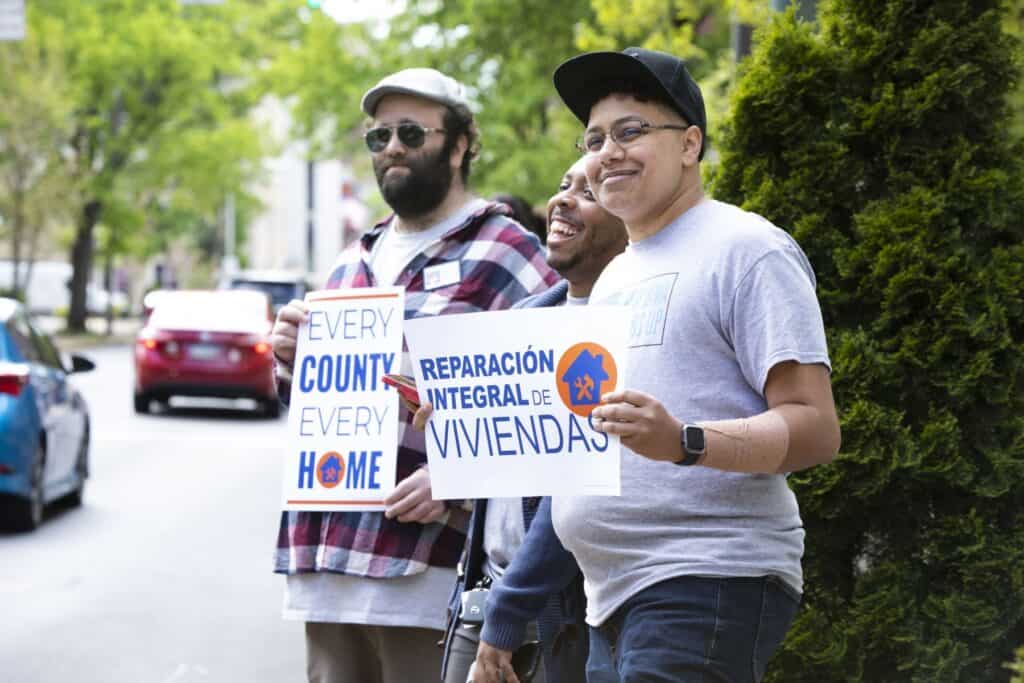
Communities all across the country are following the example of Pennsylvania Stands Up. In Washington State, Firelands Workers United is going door to door and partnering with the local Department of Commerce to let people know about the millions of dollars that are available to them, and how to apply. In Massachusetts, Governor Maura Healey recently gave the town of Great Barrington $1.35 million to replicate the Whole Home Repairs program.
Want to know what you can do to get a program like Whole Home Repairs started where you live? Use the Southern Economic Advancement Project’s Federal Grant Finder to find out how much money is available, and when you need to apply.
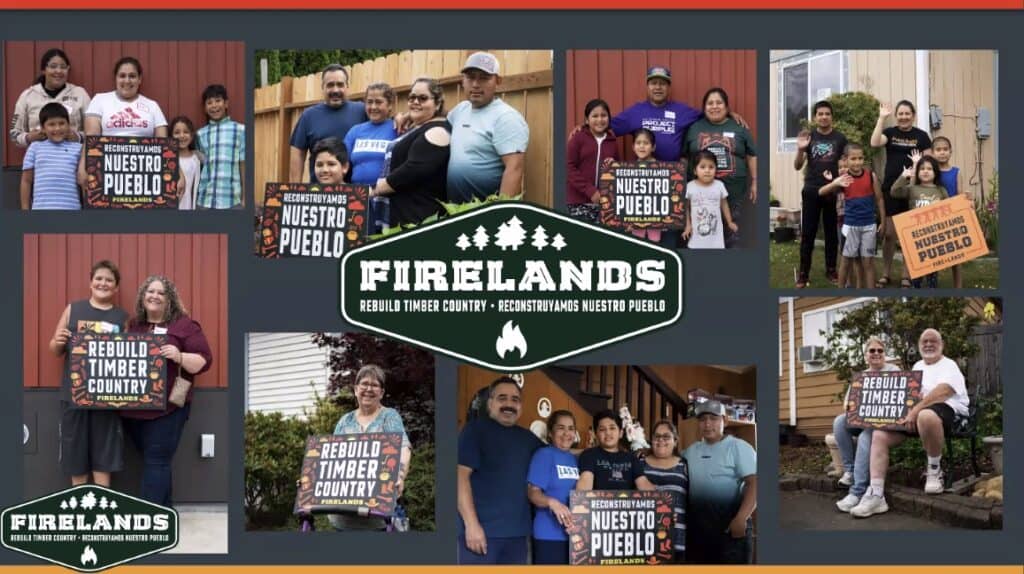
Here’s how People’s Action can help. Contact our member group near you and ask how you can cut through the red tape to apply for programs. Then on November 21, we will host a national webinar to talk more about these programs and future opportunities. Please join us, I hope to see you there!
Perhaps the most powerful thing every one of us can do is talk to our neighbors. This is a radical act of hope. Once you open the door, you can organize: ask and share with your neighbors what you’d like to see where you live, and how resources might help. Set up a meeting at a nearby church or school, and invite people to join you. Then go to your local, county, and state representatives and get results.
The historic investments through these new federal programs provide a tremendous opportunity to fund solutions to our most pressing problems in cities and small towns. Our problems are real, and as this Pennsylvania organizing work shows us, so is our power when we come together to fight for what every one of us needs. Because when we organize and show up together, WE WIN!
 Sulma Arias is Executive Director of People's Action and the People’s Action Institute
Sulma Arias is Executive Director of People's Action and the People’s Action Institute


